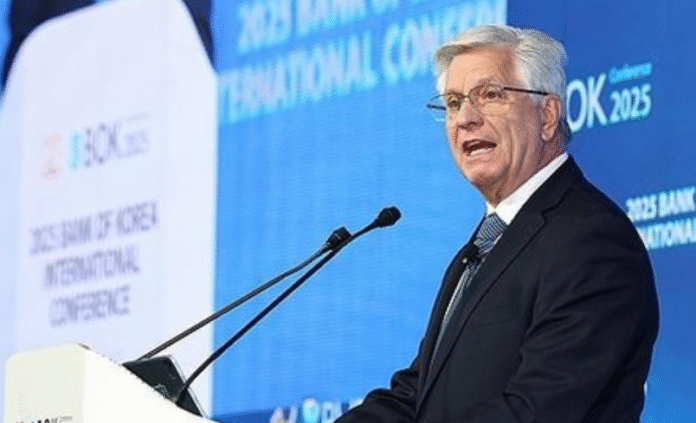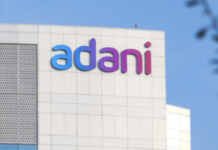Seoul– U.S. Federal Reserve Governor Christopher Waller said Monday that he expects interest rate cuts later this year, downplaying concerns that new tariffs will cause long-lasting inflationary pressure.
Speaking at the 2025 Bank of Korea International Conference in Seoul, Waller noted that while broad U.S. tariffs may temporarily push up inflation and impact employment, the effects are not expected to be sustained.
“Given my belief that any tariff-induced inflation will not be persistent and that inflation expectations remain anchored, I support looking through these short-term inflationary effects when setting the policy rate,” Waller said.
He added that if tariffs settle around the lower end of projections, underlying inflation continues trending toward the Fed’s 2 percent target, and the labor market remains stable, he would support “good news” rate cuts later this year.
Waller outlined two potential scenarios: a “smaller-tariff” case with an average 10 percent duty on goods imports, and a “larger-tariff” case with a sustained 25 percent rate. Both, he said, would likely trigger a one-time increase in prices rather than sustained inflation.
He acknowledged that higher tariffs could lead to slower economic activity and a modest rise in unemployment, as reduced consumer spending may prompt businesses to cut production and jobs. However, he emphasized that these outcomes depend on the evolution of trade policy.
Following last month’s Federal Open Market Committee (FOMC) meeting, the Fed kept interest rates unchanged for the third time, citing increased uncertainty around inflation—driven in part by potential tariff increases under former President Donald Trump’s proposed policies.
During a panel discussion with Bank of Korea Governor Rhee Chang-yong, Waller also compared current inflation dynamics with those of the COVID-19 era. He noted that the pandemic had a prolonged impact on labor supply and triggered global supply chain disruptions, while aggressive U.S. fiscal stimulus contributed to more persistent inflation.
For his part, Governor Rhee said that South Korean companies should be able to adapt if reciprocal tariffs from the U.S. remain around 10 percent. (Source: IANS)







